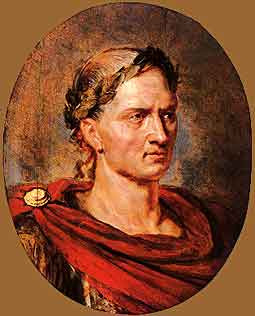

Tiberius Sempronius Gracchus, for example, won tremendous popularity with the voters by proposing to give free land to many of Rome’s poorest families, while his younger brother Gaius later did the same by proposing that the state subsidize grain to keep it affordable to Rome’s poor. Some, however, refused to accept being passed over, and attempted to win election to that exalted office by finding new ways to appeal to the voters, even if it meant winning individual popularity by acting against the interests of the Senate as a whole. Since most other senators could not match the resources and influence of these nobiles, they usually had little choice but to accept that they would never reach the highest magistracies and opportunities for command.

This competition slowly began to erode the Senate’s ability to build consensus among its members.īy the time Cato was born, the most elite senatorial families-the nobiles or nobles-worked together to promote the careers of their own members and their supporters, building overwhelming support for their own candidates in elections and making it extremely difficult for others to advance politically. By Cato’s birth in 95 BC, however, Rome’s wars had become far more profitable, and some senators acquired astronomical wealth from military command, thereby eclipsing their less successful senatorial peers and triggering intense competition for the consulship and military commands. Rome had not been a wealthy state in earlier times, and the profits generated by its earlier campaigns had rarely been outstanding or controlled by a single commander, which meant that wealth had not been particularly important in determining a senator’s status and prestige.

As Rome’s empire expanded and its wars became larger, more glorious, and more profitable, competition for the consulship-which enabled a man to exercise senior military command-increased exponentially. Thus a unified Senate could project a nearly-irresistible influence over the voters, enabling it to maintain control of public affairs.Ĭato was a member of Rome’s senatorial elite and supported its traditional ability to run the state, but things were changing quickly in his lifetime. This cooperation was usually arranged by the most senior and important senators, who were normally able to bring the Senate to a consensus position on major issues, and that consensus among Rome’s leading men was usually sufficient to guide the votes of the citizens. As a result, so long as the senators and their families worked together, they were usually able to deploy their combined influence to control the outcome of elections and legislative votes. The citizens in their assemblies made laws and elected magistrates, but they were very deferential to the social rank and moral authority of Rome’s senators. Cato championed the traditional system of government that for centuries had enabled the senatorial elite to use its collective influence and resources to dominate Roman politics, religion, and society. Cato was a staunch champion of the traditional prerogatives of the aristocratic elite in the Senate, and so a fierce antagonist of any man who sought to gain individual influence and power at the expense of the Senate. Marcus Porcius Cato ‘The Younger’ was one of the most fascinating and important men in a critical era of Roman history: the mid-first century BC, when the Roman Republican system of government finally collapsed and gave way to an imperial monarchy. These achievements and the support of his veteran army threatened to eclipse the standing of Pompey, who had realigned himself with the Senate after the death of Crassus in 53 BC.Fred Drogula examines the truth behind the man and his times. During this time he both invaded Britain and built a bridge across the Rhine river. Caesar rose to become one of the most powerful politicians in the Roman Republic through a string of military victories in the Gallic Wars, completed by 51 BC, which greatly extended Roman territory. Their attempts to amass power as Populares were opposed by the Optimates within the Roman Senate, among them Cato the Younger with the frequent support of Cicero. In 60 BC, Caesar, Crassus and Pompey formed the First Triumvirate, a political alliance that dominated Roman politics for several years. He played a critical role in the events that led to the demise of the Roman Republic and the rise of the Roman Empire. A member of the First Triumvirate, Caesar led the Roman armies in the Gallic Wars before defeating Pompey in a civil war and governing the Roman Republic as a dictator from 49 BC until his assassination in 44 BC. Gaius Julius Caesar was a Roman general and statesman.


 0 kommentar(er)
0 kommentar(er)
